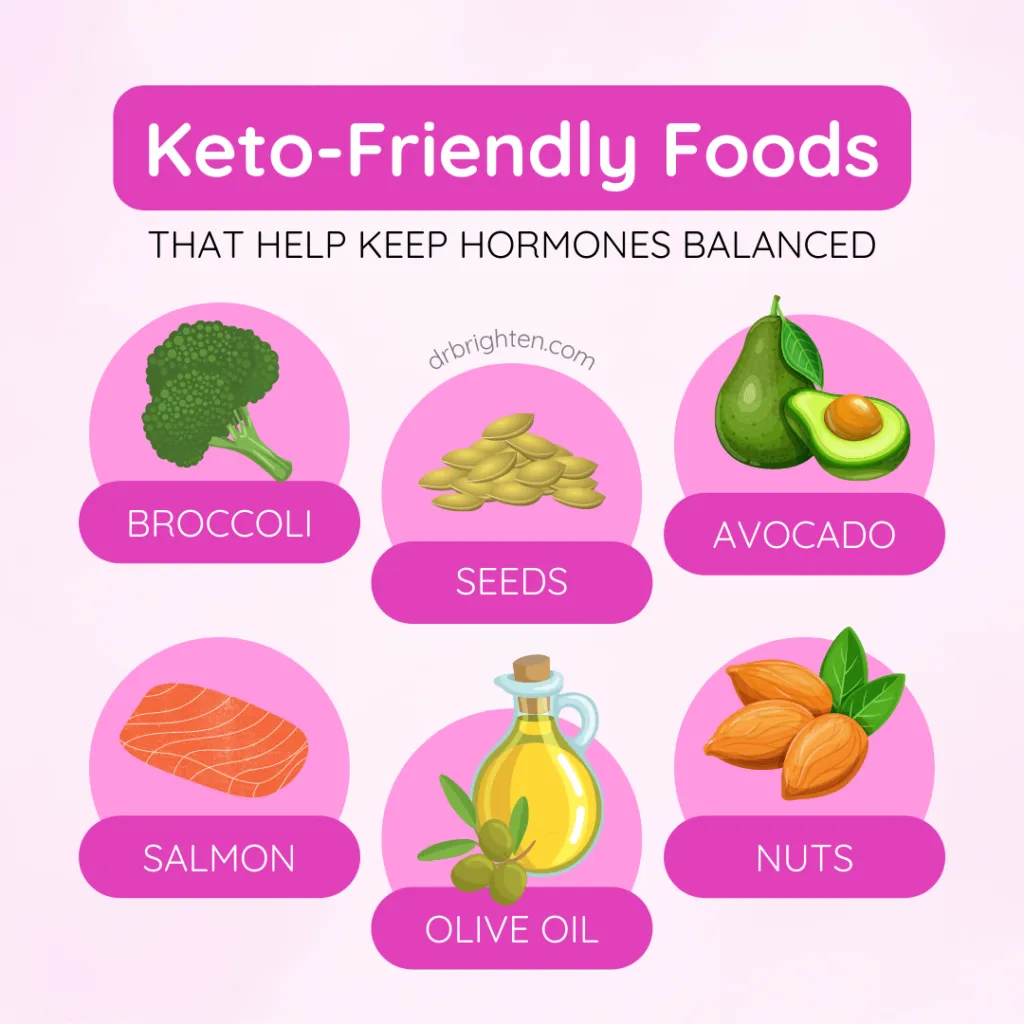The ketogenic diet, or keto diet, has gained popularity in recent years for its ability to help people lose weight and improve their overall health. But did you know that the keto diet can also play a significant role in regulating hormones and improving overall hormone balance in the body? In this article, we will explore how the keto diet can help regulate hormones and improve health, as well as provide answers to some frequently asked questions about this popular diet.
What is the keto diet?
The ketogenic diet is a high-fat, low-carbohydrate diet that has been shown to help people lose weight, improve blood sugar control, and reduce inflammation in the body. The basic premise of the keto diet is to switch the body’s primary source of fuel from carbohydrates to fats, forcing the body to enter a state of ketosis. In ketosis, the body produces ketones from fat stores, which can be used as an alternative fuel source for the brain and body.
How Does the keto diet Regulate Hormones?
Hormones play a crucial role in regulating various bodily functions, including metabolism, energy levels, mood, and fertility. When hormones are out of balance, it can lead to a host of health issues, including weight gain, fatigue, and mood swings. The keto diet can help regulate hormones in several ways:
1. Insulin: One of the key hormones regulated by the keto diet is insulin. Insulin is a hormone produced by the pancreas that helps regulate blood sugar levels. When you eat carbohydrates, your body releases insulin to help transport glucose from the bloodstream into cells for energy. However, when you consume too many carbohydrates, it can lead to insulin resistance, where cells become less responsive to insulin’s signals. This can lead to high blood sugar levels and an increased risk of diabetes. By reducing carbohydrate intake and increasing fat consumption on the keto diet, insulin levels are kept low, which can help improve insulin sensitivity and blood sugar control.
2. Leptin: Leptin is a hormone produced by fat cells that helps regulate hunger and energy balance. When leptin levels are low, it can lead to increased appetite and weight gain. The keto diet has been shown to increase leptin sensitivity, which can help reduce hunger cravings and promote weight loss.
3. Ghrelin: Ghrelin is another hormone that plays a role in regulating hunger and appetite. When ghrelin levels are high, it can lead to increased hunger and overeating. The keto diet has been shown to decrease ghrelin levels, which can help reduce hunger cravings and promote weight loss.
4. Cortisol: Cortisol is a stress hormone that plays a role in regulating metabolism, immune function, and stress response. When cortisol levels are chronically elevated, it can lead to weight gain, fatigue, and mood disorders. The keto diet has been shown to help regulate cortisol levels by reducing inflammation in the body and promoting a state of ketosis, which can help reduce stress and improve overall hormone balance.
5. Thyroid hormones: The thyroid gland produces hormones that help regulate metabolism, energy levels, and body temperature. When thyroid hormone levels are imbalanced, it can lead to weight gain, fatigue, and mood disorders. The keto diet has been shown to help improve thyroid function by reducing inflammation in the body and promoting a state of ketosis, which can help regulate thyroid hormone levels and improve overall hormone balance.
In addition to regulating hormones, the keto diet has been shown to improve several other health markers, including:
– weight loss: The keto diet has been shown to be effective for weight loss, as it promotes fat burning and reduces appetite.
– Blood sugar control: The keto diet can help improve blood sugar control and insulin sensitivity, which can help reduce the risk of diabetes.
– Inflammation: The keto diet has been shown to reduce inflammation in the body, which can help reduce the risk of chronic diseases such as heart disease and cancer.
– Brain health: The keto diet has been shown to improve brain function and cognitive performance, as ketones are a more efficient fuel source for the brain than glucose.
Frequently Asked Questions about the keto diet:
1. Is the keto diet safe for everyone?
The keto diet is generally safe for most people, but it may not be suitable for everyone. It is always recommended to consult with a healthcare provider before starting any new diet or lifestyle changes, especially if you have any underlying health conditions or concerns.
2. How long does it take to get into ketosis on the keto diet?
It can take anywhere from a few days to a couple of weeks to enter ketosis on the keto diet, depending on individual factors such as metabolism, activity level, and carbohydrate intake. It is recommended to monitor your ketone levels using a blood ketone meter or urine ketone strips to ensure you are in ketosis.
3. What foods can I eat on the keto diet?
On the keto diet, you should focus on eating high-fat, moderate-protein, and low-carbohydrate foods. Some examples of keto-friendly foods include meat, fish, eggs, nuts, seeds, avocado, olive oil, and non-starchy vegetables. It is important to avoid high-carbohydrate foods such as bread, pasta, rice, and sugary snacks.
4. Can I exercise on the keto diet?
Yes, you can exercise on the keto diet. In fact, many people report improved energy levels and endurance when exercising in a state of ketosis. It is important to stay hydrated and replenish electrolytes when exercising on the keto diet, as ketosis can lead to increased water loss.
5. Are there any side effects of the keto diet?
Some people may experience side effects when starting the keto diet, commonly known as the “keto flu.” Symptoms of the keto flu can include fatigue, headaches, nausea, and irritability. These symptoms are temporary and usually subside within a few days as the body adjusts to using ketones as fuel.
In conclusion, the keto diet can play a significant role in regulating hormones and improving overall health. By reducing carbohydrate intake and increasing fat consumption, the keto diet can help regulate insulin, leptin, ghrelin, cortisol, and thyroid hormones, leading to improved weight loss, blood sugar control, inflammation, and brain health. If you are considering trying the keto diet, be sure to consult with a healthcare provider to ensure it is safe and appropriate for your individual needs.


